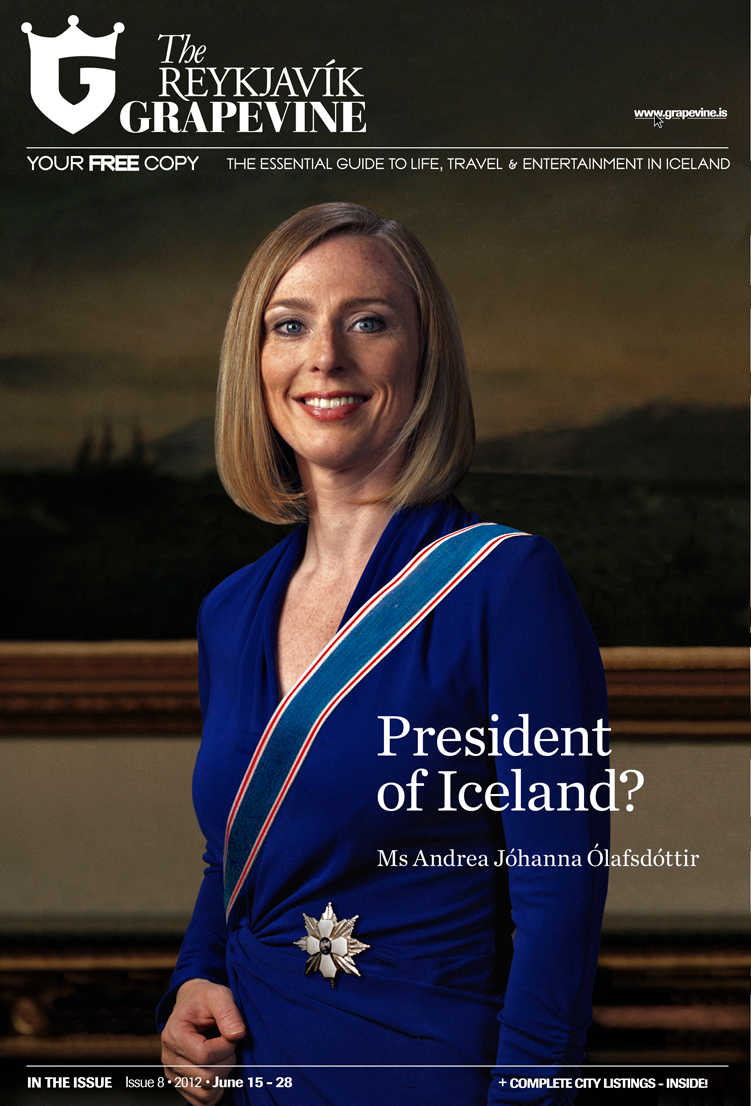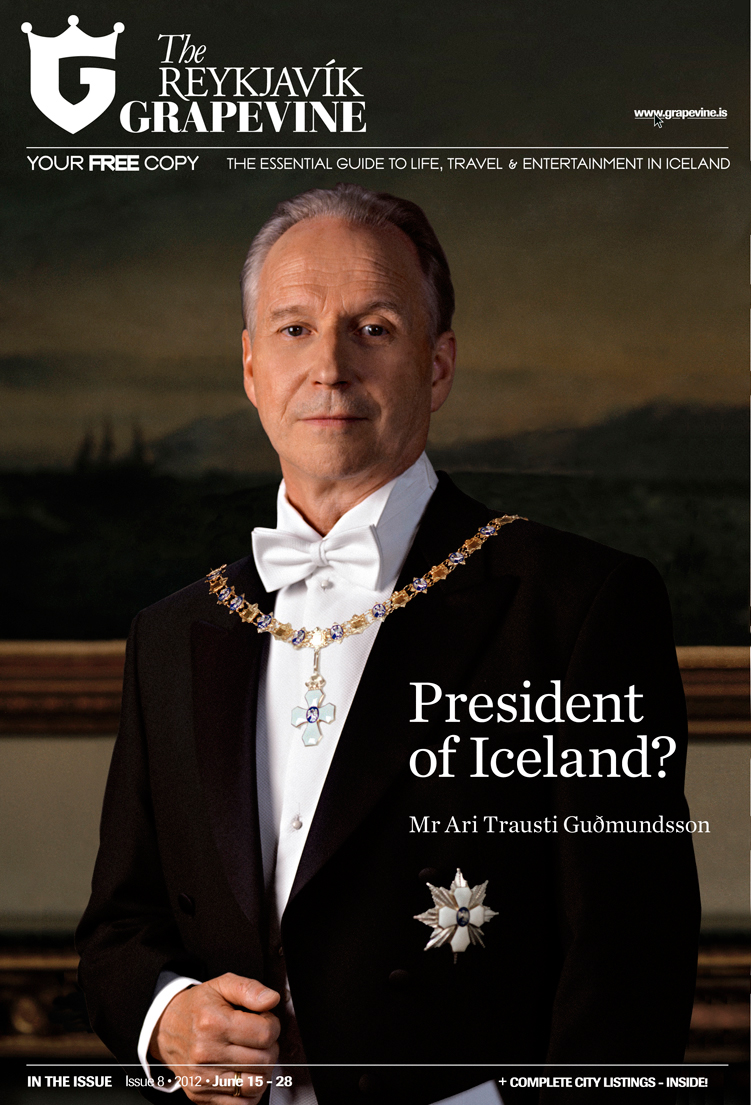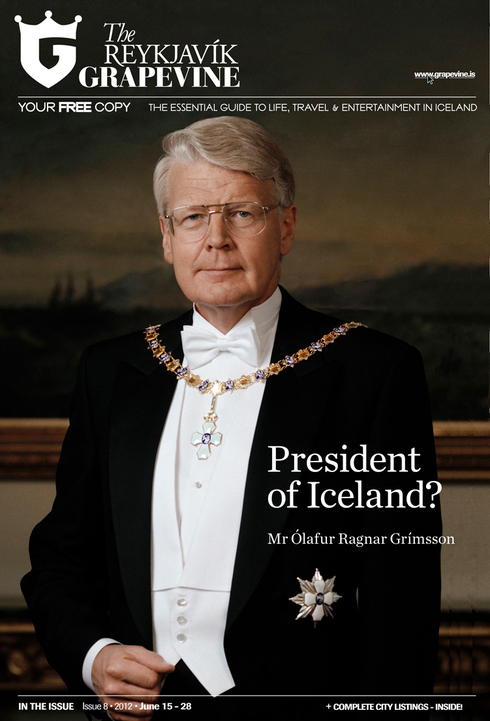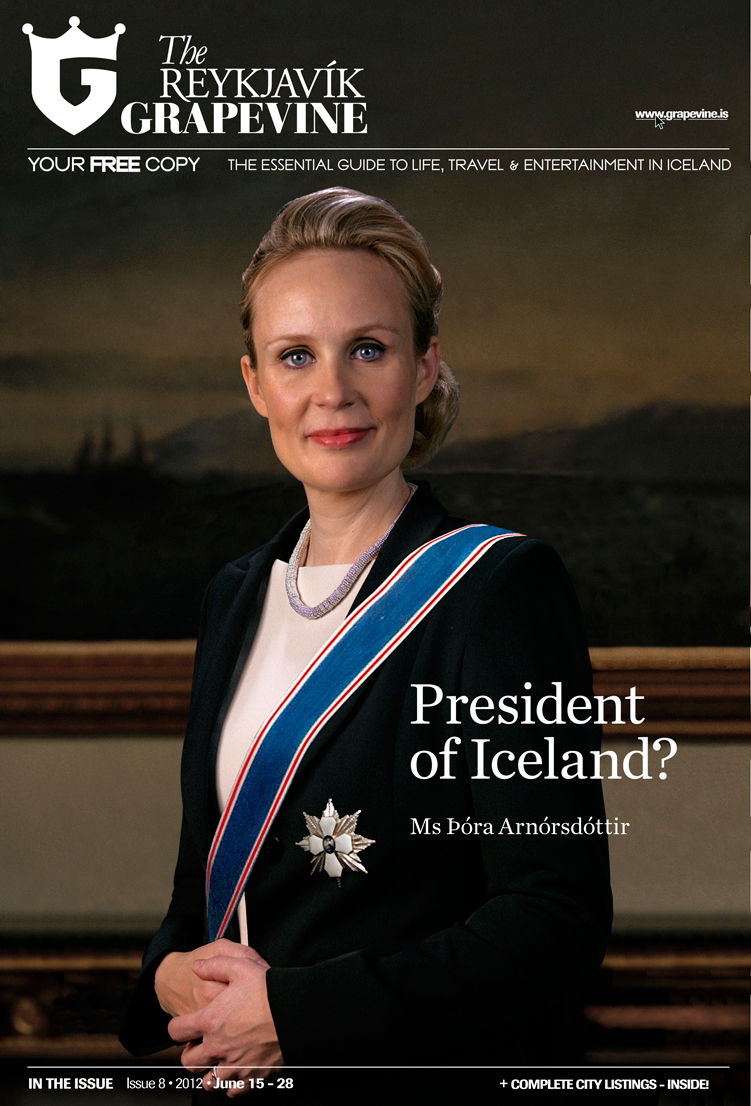Hannes Bjarnason was a consultant and project manager for a small company in Norway before very recently moving to Iceland and then deciding to run for president. For much of Iceland’s voting public, he is relatively, if not completely, unknown, which may in part explain his low polling numbers (somewhere just over 1%, which he has admitted doesn’t surprise him at all). The Grapevine sat down with Hannes to get a better idea of just who this guy is, and what kind of president he wants to be.
When did you decide to run for president?
I’ve thought about this for many years. When [sitting president] Ólafur [Ragnar Grímsson] said he intended to be in office for only two years if he won this election—that’s what I understood him to mean, anyway—I thought this was unsupportable. But I’ve actually been feeling quite passionate about the state of the nation since the economic crash of 2008. I see many opportunities to create a positive change for this country. Our natural world, green energy, clean water—there ought to be plenty of employment opportunities for Iceland. At first, I looked into the idea of getting involved in politics to see if there might be a place for me there. But I don’t think I would make a good politician.
How do you mean?
Politics is about having a set of main platform points, running for office, and then of all the things that were in your platform, maybe getting one or two things done that you’ve promised your voters. I understand that that’s just how politics is, but I feel really uncomfortable promising something and not being able to stand by it. Myself, I prefer to speak from the heart and talk about things as they are. I have a lot of respect for politicians; there are many who are working hard to do right by Iceland. We should keep in mind—whether as presidential candidates or members of parliament—that we are role models for others, which is why we need to talk to each other with respect. I think that’s been forgotten in politics.
SOCIETAL POLITICS, NOT PARTY POLITICS
What do you think the role of the president should be?
I see the president as a unification symbol for the country, a watch keeper of democracy. There is a kind of double-edged sword to this power, in that the president can be pressured by the general public to give them the vote on laws passed by parliament. If the president cannot unify different groups, he should at least be able to increase understanding and tolerance. As president, I would focus on this especially—to encourage people to listen to each other and treat each other with respect, even when they strongly disagree.
If I understand you correctly, you don’t think the role of the president has much to do with politics.
Not party politics, no. But I make a distinction between party politics and societal politics. The president ought to focus on societal politics. The president can, for example, focus on fighting bullying in schools. That’s something closely related to our system of ethics. The current president has focused on drug abuse. These are things I would say fall under the category of societal politics. But the president should avoid getting involved in party politics.
Do you think the current president has involved himself in party politics?
Well, every Icelandic president has made it a point to leave his or her mark on the office in some way. The current president comes from politics. He’s been in politics since he was 16 years old, and he brings a lot of politics with him into the office. But I don’t think he’s changed the nature of the Office of the Presidency. He’s simply used the power that he has, and he is very political. If I were president, I wouldn’t be so political. I would have a clear division between the president and parliament. We live under a parliamentary democracy, even if it isn’t perfect, and I do not want us to start moving in the direction of a presidential democracy, not at all.
PEOPLE HAVE TO KNOW EXACTLY WHERE YOU STAND
What’s your take on the disagreement between the president and parliament over joining the European Union?
I believe the president should express his opinion. For example, [the president] is against joining the EU, although it is the platform of the government to join. I’m against joining the EU. I don’t see any advantages to joining. But when I say that, I stop there because people need to trust that I am not personally working against the country joining the EU. This is important to me, as I believe the president should be a kind of mediator. In order to do that, people need to know exactly where you stand, period, and then you progress from there. This way, people aren’t left wondering what you have going on behind the scenes or what you really mean when you say this or that. I know other candidates have other opinions on this matter. Þóra [Arnórsdóttir], for example, has said that a president shouldn’t express an opinion because then the president can’t be a mediator. I disagree. People have to know exactly where you stand.
Otherwise you can’t build trust.
OK, so you’re against joining the EU. If the EU accepts Iceland, and a parliamentary majority passes a proposal to make this move, will you sign it into law or refer it to public referendum?
I think the people should decide a matter like this. It’s a huge deal and I consider it only natural that the people vote on it. I can’t imagine any president acting any differently than this. When it comes to referendums in general, I think it ought to be used in the event of the most important, most crucial matters concerning the country. The current president has said that he believes a fishing quota law ought to be put up for referendum because fish is a natural resource. So I asked him, live on public broadcasting radio, what about geothermal power plants? If someone wants to build high-tension power cables across a tourist area? Should these power plants be put up for referendum? He didn’t answer this question.
Do you think he made the right decision when it came to putting Icesave up for referendum?
I found it strange that he should talk about how he saved the nation by doing it. He couldn’t do anything but refer this matter to referendum. It would have actually taken more bravery to sign it into law and not refer it to a referendum.
THE OFFICE SHOULD HAVE ETHICAL RULES
Should the president be allowed to promote Icelandic business interests abroad?
No, I don’t think so. At least not for any particular company. The president should tread very carefully in this area. There ought to be ethical rules in place that say what the president may and may not do.
So you believe there should be ethical rules for the office of the presidency?
Yes, absolutely. The current president wrote what amounted to essentially a letter of recommendation for [former Kaupthing manager and former Interpol fugitive] Sigurður Einarsson. What is that, if not corruption? He was comparing Icelandic businessmen to the Vikings. It’s all fine and good to cite history, but the Vikings weren’t all good guys. They were traveling across Europe stealing and raping. It’s ridiculous to say that we’re so good with money because we used to be Vikings. You have to be very careful when connecting modern business with history. I think the president should be able to introduce foreign investors to the Icelandic market, but tread very carefully to ensure he isn’t recommending a specific company over any others. The sitting president doesn’t believe the office needs ethical rules because he points out that it’s already against the law for the president to accept money. But that’s not the only way to corrupt someone. What about flights in a private jet? Maybe I have a nice farmhouse out in the country I could let you stay in for a couple months, if you wanted. Corruption isn’t all about money. There needs to be clear ethical guidelines for the office of the presidency.
If you’re elected president, what are the first three things you would do?
One of the first three things I would do would be to work on making a code of ethics for the office. I think this is very important. Then of course there are the societal political matters that I mentioned earlier, such as fighting bullying in schools. And then there is the notion of what sort of image Iceland shows the rest of the world: our culture, our history, Iceland as a tourist destination, Iceland as an environmentally clean country. We have our fish, our power grid, our natural resources, all these foundation elements that make our country great. We have a lot of opportunities and should be looking to the future with this idea of maintaining an environmentally clean country in mind.
If you don’t become president, what’s your Plan B?
I don’t think I’ll get involved in politics. I have two children from a previous relationship in Norway. I might move to Norway until they’re old enough to decide whether they want to move to Iceland or stay in Norway. I don’t need to move to Bessastaðir to be happy. I can find happiness in Skagafjörður. That’s not why I’m running for president. I’m running for president because I truly want to serve the nation.
—
Full name: Hannes Bjarnason
Born: April 25, 1971, in Sauárkrókur (Age 41)
Education: BS in geography from the University of Iceland; Master of Management from BI Norwegian Business School (thesis outstanding).
Occupation: Hannes has worked as a project manager in a number of municipalities in Norway—where he lived for the past fourteen years—as well as acted as a mediator between employers and trade unions.
Tidbit: Hannes prides himself in the variety of his hands-on work experience; his broad resumé includes farming, slaughterhouse work, construction, hotel service, retail and industry.
—
Read interviews with the other candidates:
 Andrea Ólafsdóttir
Andrea Ólafsdóttir
 Ari Trausti Guðmundsson
Ari Trausti Guðmundsson
 Ólafur Ragnar Grímsson
Ólafur Ragnar Grímsson
 Þóra Arnórsdóttir
Þóra Arnórsdóttir
Buy subscriptions, t-shirts and more from our shop right here!















